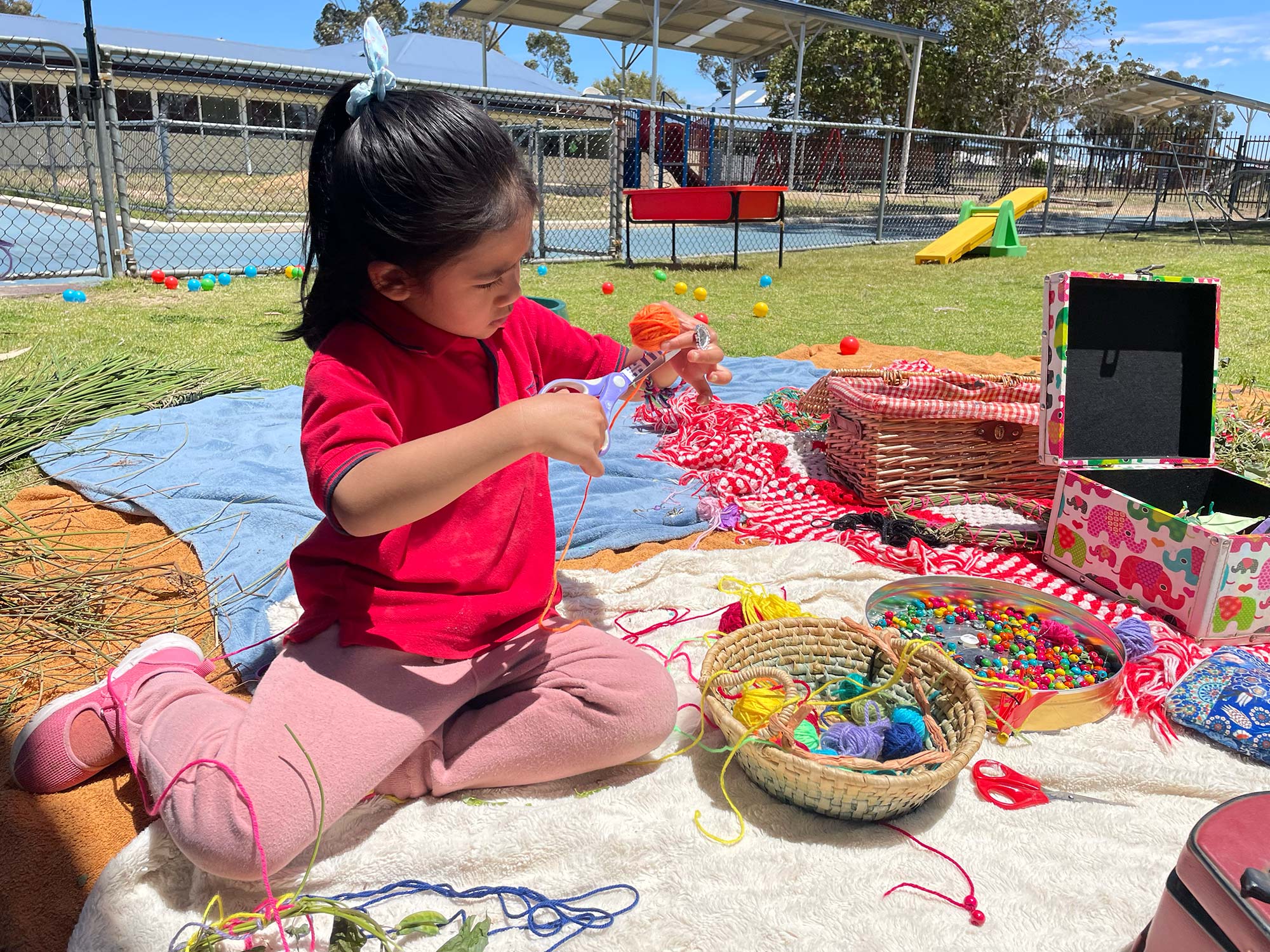Achieving better well-being and developmental outcomes for WA children
The Early Years Partnership puts children and their families at the centre of decisions about how services in their community are delivered.
The importance of the early years
Did you know that 90 per cent of a child’s brain has grown by age five? A critical period of a child’s life, their first five years is where they build the foundation for lifelong learning, health, and wellbeing. However, one in five WA children is considered developmentally vulnerable by the time they start full-time school, as measured by the Australian Early Development Census (AEDC).
Despite significant investments from all levels of government and community services, key developmental indicators for young children in many communities still need to improve. Research shows that change requires a variety of different approaches which suit the unique contexts of communities to ensure that every young child and their family has what they need to thrive.
What is the Early Years Partnership?
The Early Years Partnership is a commitment to creating lasting change. By working differently with communities and putting children and their families at the centre of decisions, we’re improving children’s health, development and learning from conception to the age of four.
The Partnership builds on communities’ strengths, assets and knowledge to establish evidence-informed solutions that meet local needs.
We recognise that children are born into families, families live in communities and communities are impacted by state and federal government systems and policies. Therefore, change is required at all levels.
Who is involved in this partnership?
The Early Years Partnership is a partnership between the WA State Government, Minderoo Foundation and The Kids Research Institute Australia as the evidence and evaluation partner. The Partnership is overseen by a Board with Independent Executive Co-Chairs and representatives from the State Government, Minderoo Foundation, and the Commissioner for Children and Young People. The Australian Government supports the Early Years Partnership via the Connected Beginnings Program.
At a State Government level, the key agencies are the Department of Communities, Health and Education.
Our four partner communities are in metropolitan, regional, remote and very remote areas. They currently include Armadale West, Central Great Southern (including Shires of Katanning, Kojonup, Gnowangerup and Broomehill-Tambellup), Derby (including Mowanjum and Pandanus Park) and Bidyadanga. Each selected community is a critical partner, involving local leaders and community members, and service providers from the government and non-government sectors.
How the Partnership is creating change
The Early Years Partnership has brought together community leaders, state and federal government, researchers, and philanthropy to achieve better outcomes for Western Australian children and their families.
With a commitment to listen and work collaboratively with communities, the Partnership aims to create lasting change for WA children. We’re doing this by increasing awareness about the importance of early development, strengthening whole-of-community governance and collaboration, providing the best data and evidence and mobilising resources at the community, state, and federal levels.
In doing so, Early Years Partnership Communities are supported to identify the main enablers and barriers to children thriving in their communities, co-design agreed and targeted community plans and test, trial and learn from evidence-based solutions.

Our Principles
- Putting children, families and communities at the heart of everything we do.
- Listen and act upon the wisdom of families, communities and their children.
- Value the community’s strengths, assets, and knowledge.
- Take a place-based approach; community is at the core.
- Try, test, learn and improve – again and again.
- Building trust through equal partnership.
Monitoring and Evaluation
The Early Years Partnership evaluation incorporates a range of measures to capture the effectiveness of the initiative. That is, what works, for whom and under what circumstances in improving child wellbeing and school readiness for children (aged 0-4 years) in four distinct types of communities (metropolitan, rural, remote and very remote).
A developmental evaluation framework is being used to evaluate the Early Years Partnership. The framework is used to evaluate innovative, radical program design and complex issues and can help by framing concepts, testing quick iterations, tracking developments, and monitoring arising issues.
The Early Years Partnership evaluation aims to capture change at four levels: child, family, community and systems. Several linked data sets are being used to measure change in outcomes for children over time. Family outcomes are being captured using a series of online and hard-copy surveys and other methods co-developed with communities. Innovative methods such as using a ‘virtual’ map of services targeting 0-4 year olds in the community sites are being used to measure changes in the strength of collaborations between organisations. This ‘virtual’ map is being overlayed by a social network analysis that will be used to ‘fact check’ service access, reach and strength of collaboration between services.
Understanding how the Early Years Partnership made an impact is critical to learning what it takes to create change for all Western Australian children. As the evidence and evaluation partner for the Early Years Partnership, The Kids Research Institute Australia will lead the evaluation of the Partnership and the projects it funds.